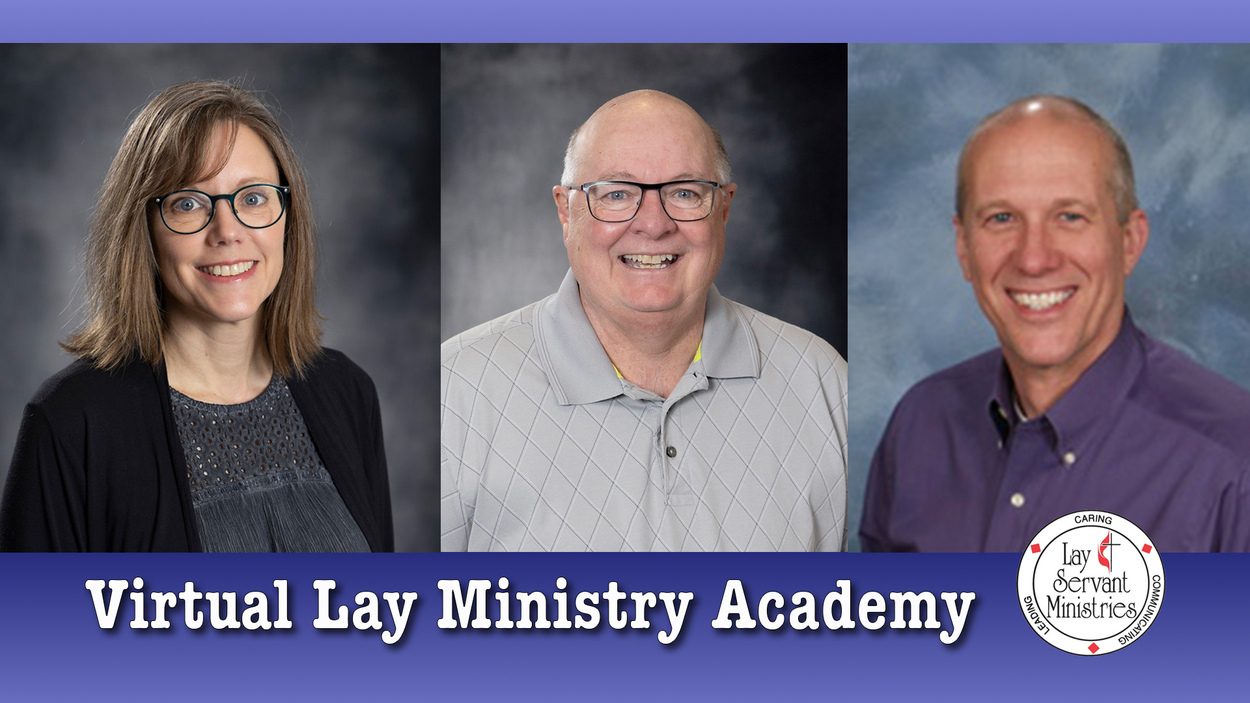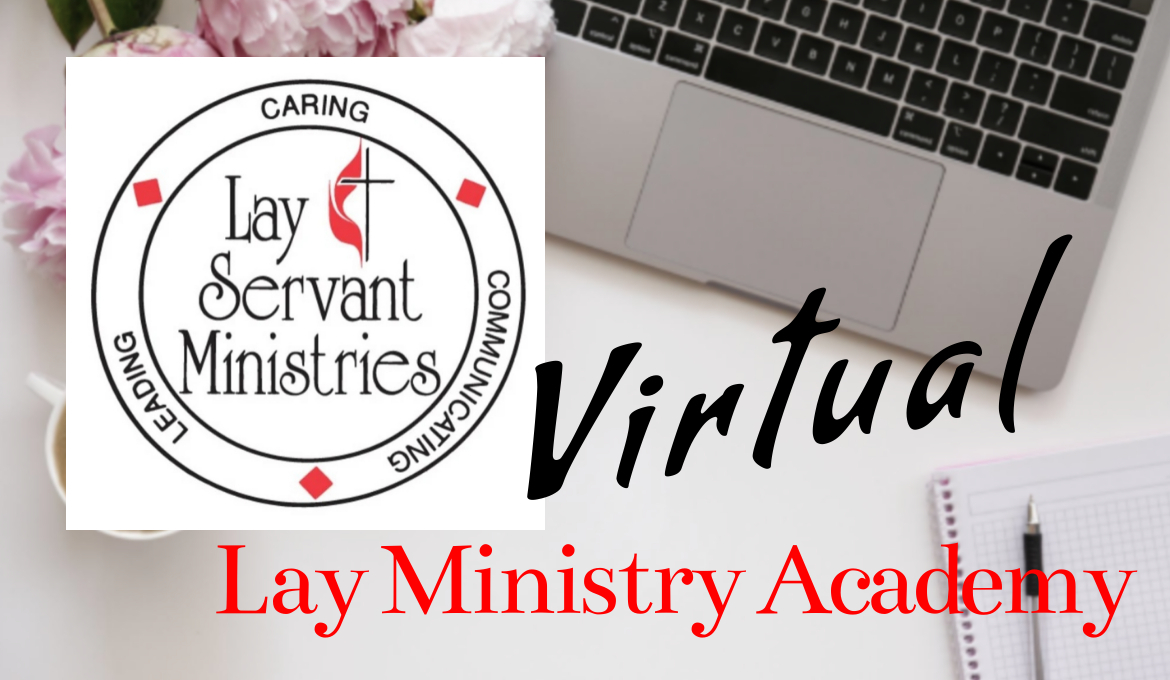
Virtual Lay Academy inspires lay leaders where they are
Through baptism, all Christians are called to a ministry of servanthood. Some feel called to serve their church or others more deeply.
Laypeople are the backbone of our United Methodist congregations. That is especially true in the Dakotas Conference, where many small rural churches lean heavily on the laity. Sometimes churches find clergy unavailable to serve , or that resources call for creative options for leading worship.

Lay Ministry Academy instructores, left to right, Revs. Michele Slott, Bob Ruedebusch, and Doug Diehl. File Photos
Lay people called to lead often need more training to fulfill their calling. The Dakotas Conference launched the Lay Ministry Academy through the Dakotas Connections Initiative—a grant focused on the vitality of rural ministry.
Three clergy leaders, Reverends Doug Diehl, Bob Ruedebusch, and Michele Slott, brainstormed, planned, and are delivering the academy. The academy was recently offered virtually to participants in South Dakota and North Dakota.
One participant, Sue Isebrand, a member of the United Methodist Church in Wagner, South Dakota, had taken lay ministry courses several decades ago. When contacted about trying the online academy, she jumped at the chance to deepen her commitment to lay preaching.
"When I saw the email, I thought, 'Oh, this is great because I can stay home and do this.' I don't mind doing online things. Zoom is a great tool, and it worked out well. I didn't see any difference except that we weren't face to face, actually."
"In the Lay Ministry Academy, participants deliver a sermon," said Pastor Slott, who coordinated the virtual Lay Ministry Academy from Open Heart UMC in Rapid City, South Dakota, where she serves. "The Academy is designed to be informational but also connectional. We want participants to leave with experience, resources, coaching, and a connection to each other."

On February 18, Sue preached her sermon, using the assigned scripture for all participants, Isaiah 6:1-8, which is the story of Isaiah's calling. She referenced other called stories from Samuel and Moses and moments where she had personally been called. Sue said the academy has given her new resources, feedback, and mentoring, and she has a renewed excitement to help other churches in pastoral transition or need of pulpit supply.
"We were coached, and we had a couple of books and some other supplemental material that helped a lot with sermon preparation," Sue said. "I felt like I learned a lot, even though I've been doing it for a time, I felt like it was really helpful, and I have the resources now– which I loved, that I can go back and refer to next time I'm preparing a sermon."
"The people were so great," added Sue, "I received such really, really good feedback from them on my message. So, it was great."
What do lay ministers do with their passion, gifts, and training? Sue quickly responded, "I don't like to travel too far, but I see myself being more available to churches. It was a great experience, and the people were very nice and very gracious. So, if I can help people whose pastor iss gone on vacation or they don't have a pastor or whatever, that's where I see my mission leading me right now."
The curriculum is based on Module Two: The Practice of Ministry for Certified Lay Ministry. Resources and content are from Discipleship Ministries of The United Methodist Church and distributed by The Upper Room.